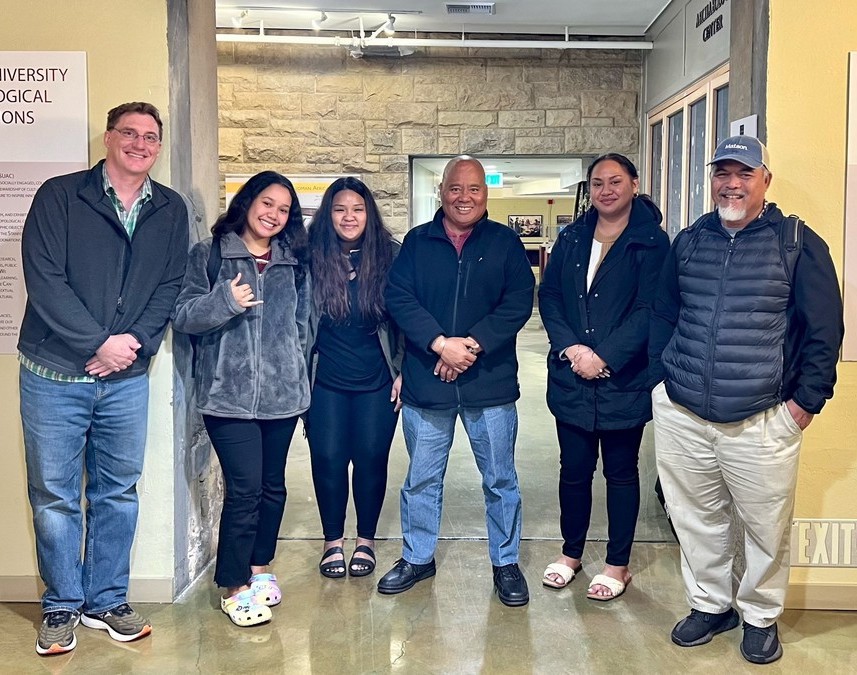Seafaring researchers travel to Stanford workshop
In December, PI-CASC-funded PI Joe Genz and Graduate Scholars Jerolynn Myazoe and Shania Tamagyongfal traveled to the Archeology Center at Stanford University for a workshop on their specialty: seafaring.
Genz is leading a project with the two students on recording the oral histories of traditional sea voyaging from Yap and the Marshall Islands, interviewing elders to document their experiences, with the goal of reestablishing traditional sea-going methods to promote sustainable sea transport.
Takeaways
Genz: “In addition to hearing stories about seafaring from two navigation practitioners that directly inform the graduate research, a key takeaway for me was the potential for collaboration with the computational modelers to explore the remote past, in terms of identifying climate events, such as super storms, in paleo-climate data and then modeling how the seafaring networks may have shifted in response. Tapping into this ancestral knowledge of resilience, coupled with the oral traditions and contemporary practices, is very exciting and adds a deep temporal scale to the project.”
Tamagyongfal: “Along with the shared stories and experiences from the indigenous navigators in continuing the traditional practice of seafaring in Yap and the Marshall Islands, a key takeaway from me was the potential collaborations that could develop further from our projects with partnerships in computational modeling. In particular, I thought it would be really exciting to map out the sawei route (one of Yap’s historical interaction/voyaging network) and work out climate models of the weather or typhoon patterns over different historical time periods. It was definitely inspiring to see how much more connections can be made in different fields of study!”
Myazoe: “The workshop’s final day was definitely a pivotal moment for me. I started thinking about the different workshop sessions we had during our time there and how incredible it would be to visually map the pre-contact voyaging and safety networks that were created in the northern and southern atolls of the Marshall Islands during periods of environmental uncertainty. The fact that the entire workshop encouraged me to think about my future and the potential for expanding the work that we are currently doing, in my opinion, was a significant takeaway for me.”
Read more about the workshop and their experience in this UH Hilo news story.


